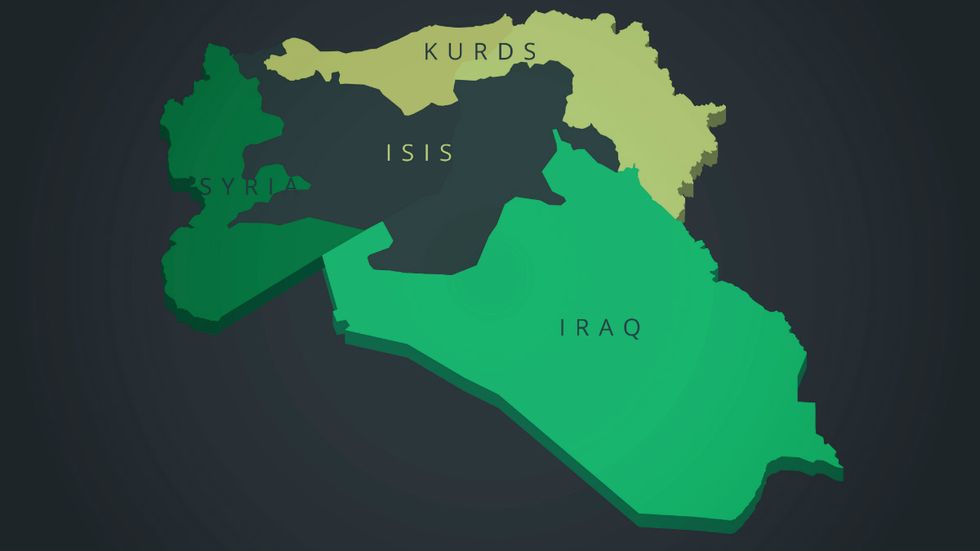
© 2024 Blaze Media LLC. All rights reserved.
The coalition against the Islamic State has reclaimed the city of Mosul in Iraq from the global jihadi organization. Retaking Mosul, which was once considered the capital of ISIS operations in Iraq, is no small feat; Sunday marked the end of a nine-month military campaign that resulted in thousands of deaths and almost a million displaced people.
Iraqis took to the streets in celebration, as Prime Minister Haider al-Abadi joined them Sunday in announcing their liberation from ISIS. But beyond the surface of a celebratory atmosphere, many questions arise about the future of U.S. interests in Iraq.
The path forward involves examining and auditing our foreign policy to make sure it is protecting America’s national interests, taking a hard look at the realities on the ground in Iraq, and getting away from the ideological restrictions imposed by the Obama era and administration.
Demographic issues/sectarian strife
The modern nation of Iraq was created by the British Empire shortly after World War I following the fall of the Ottoman Empire. Its history is rife with sectarian conflict. Though mostly ethnically Arabic, Iraq is a diverse nation, encompassing significant chunks of the population who identify as Sunnis, Shiites, Kurds, Yazidis, Christians, and others who prefer tribal or clan markers.
Whether it’s Baathist dictators engaging in genocide against Kurds, or Shiite sectarians creating conditions that allow for the rise of groups like ISIS, Iraq has never functioned well as a centralized state.
Because of these sectarian realities, think tanks like the Security Studies Group have argued that the only way to stabilize Iraq long term is to decentralize the country and eventually grant autonomy to its Sunni and Kurdish populations.
Iran grows stronger
ISIS is becoming a less threatening force in Iraq, but that means neighboring Iran will seek to fill that power vacuum and exert its influence over the country.
Geographic proximity and common interests has created a situation in which the majority-Shiite nation tends to be very open to Iranian cooperation, even though it also views the United States as something of an ally. As the Iranian regime continues to export its terrorist ideology far and wide, the U.S. must combat an increasingly emboldened Tehran that has its eyes set on a nuclear weapon and regional dominance.
Global jihad
The Obama administration harnessed its Middle East war effort behind the sole mission of defeating ISIS, while mostly ignoring the other jihadist entities gaining steam throughout the region. Obama refused to recognize or identify the ideology that motivates ISIS; instead, he dedicated America to a mission of defeating ISIS without much of a clear goal or marker for victory.
Additionally, what should be done about the ever-changing and adapting al-Qaida factions? What can we do to stop Iran from building a “land bridge” to its Hezbollah proxy in Lebanon? What happens if ISIS simply rebrands, or merges with another jihadist faction?
The Trump administration should not repeat the narrow-focused mistake of the Obama White House, which resulted in sectarian slaughter and an increasingly radicalized environment. ISIS is far from the only problem in Iraq. The ideology of global jihad is shared amongst many more groups that ultimately seek the downfall of the United States.
What’s Next?
These are but a few of the hurdles facing Iraq. President Trump can learn from the mistakes of his predecessors (such as Obama’s ideological rigidity on global jihad and George W. Bush’s failed centralized “democracy project”), and seize this moment to break away from the failed ideals of the past and secure a truly America-first foreign policy.
Want to leave a tip?
We answer to you. Help keep our content free of advertisers and big tech censorship by leaving a tip today.
Want to join the conversation?
Already a subscriber?
more stories
Sign up for the Blaze newsletter
By signing up, you agree to our Privacy Policy and Terms of Use, and agree to receive content that may sometimes include advertisements. You may opt out at any time.
© 2024 Blaze Media LLC. All rights reserved.
Get the stories that matter most delivered directly to your inbox.
By signing up, you agree to our Privacy Policy and Terms of Use, and agree to receive content that may sometimes include advertisements. You may opt out at any time.


